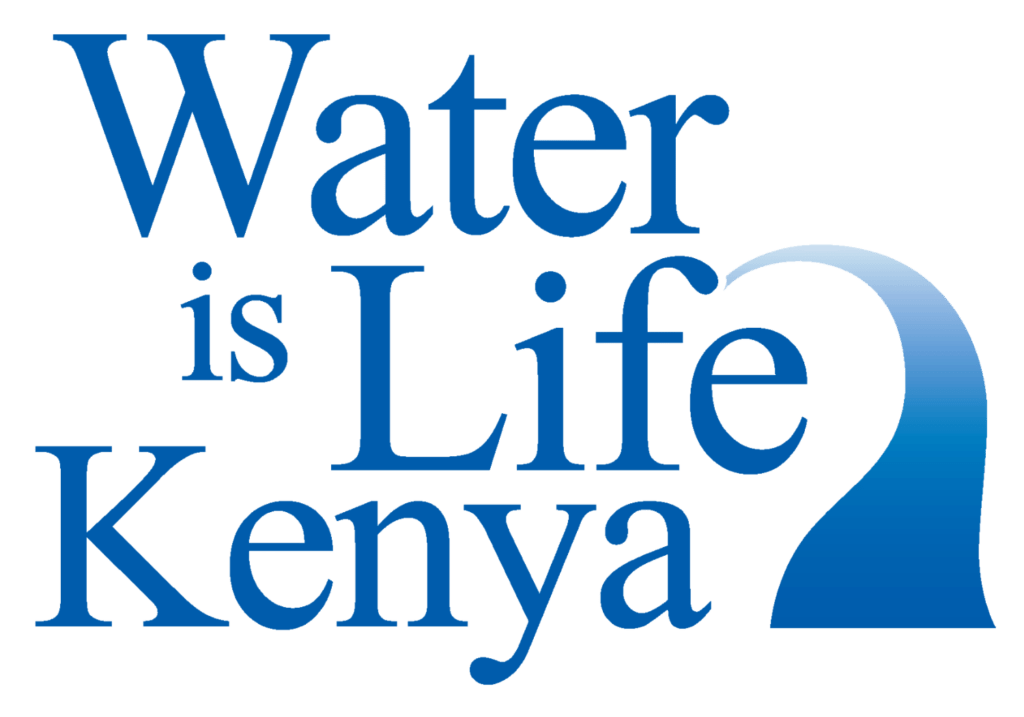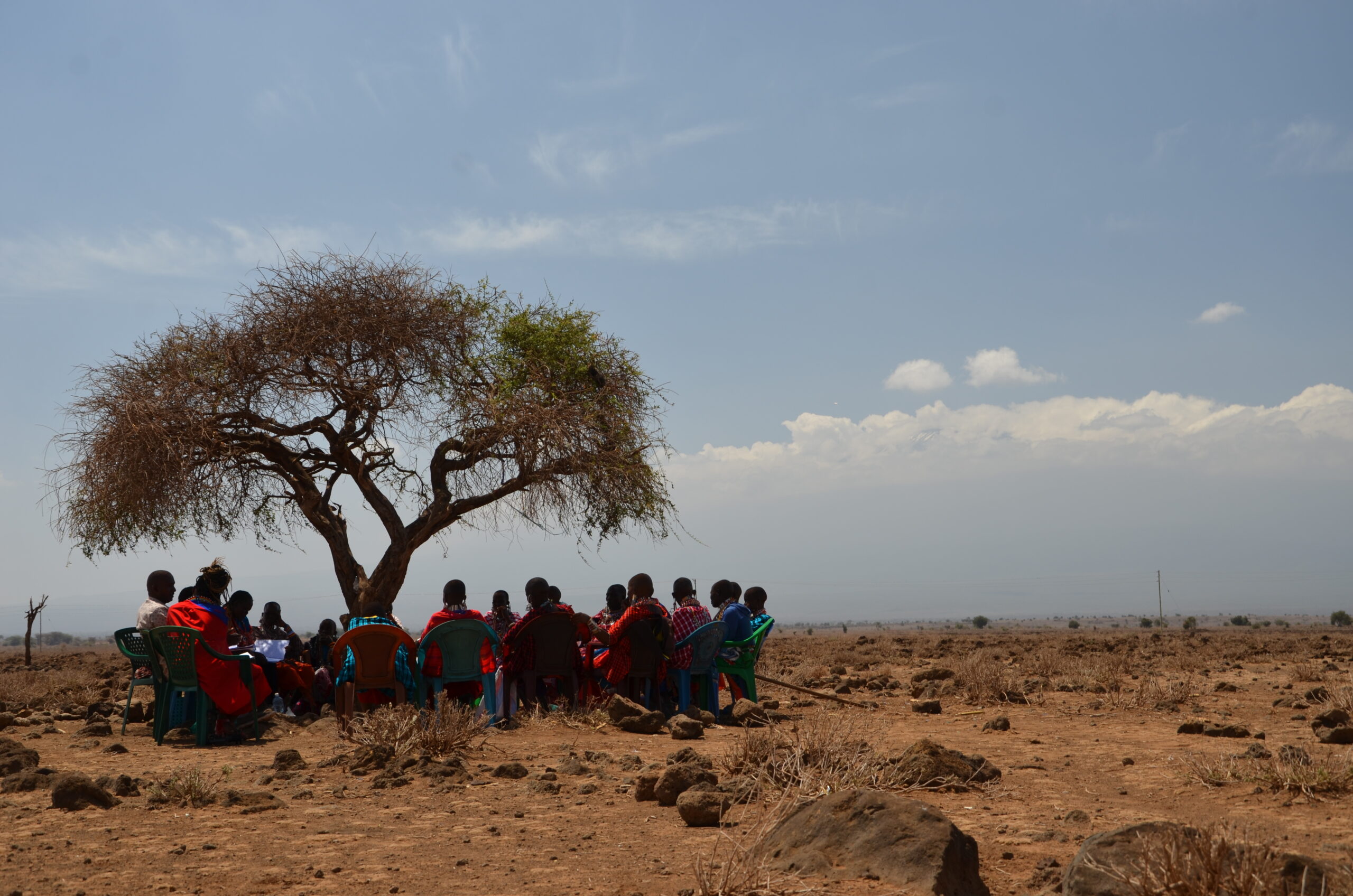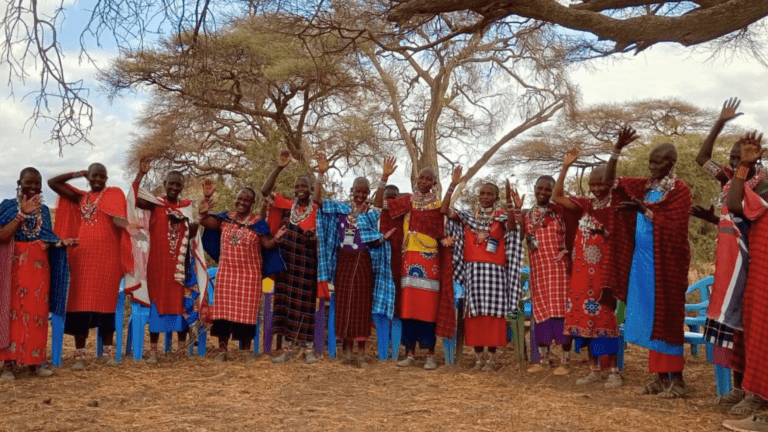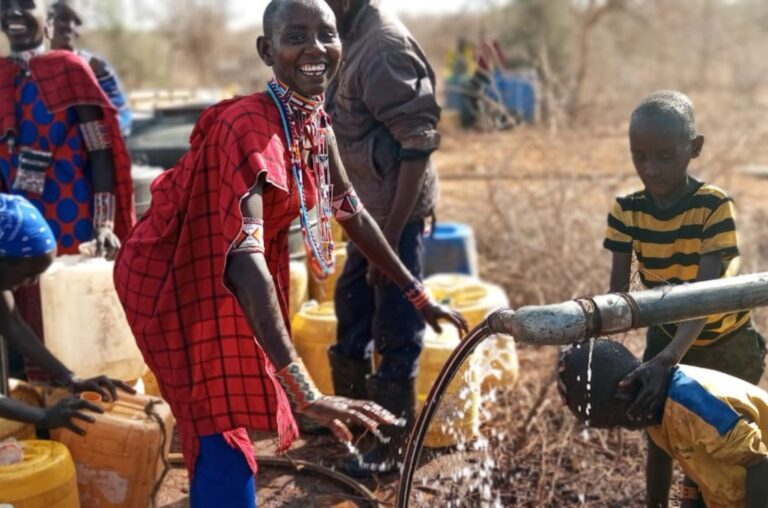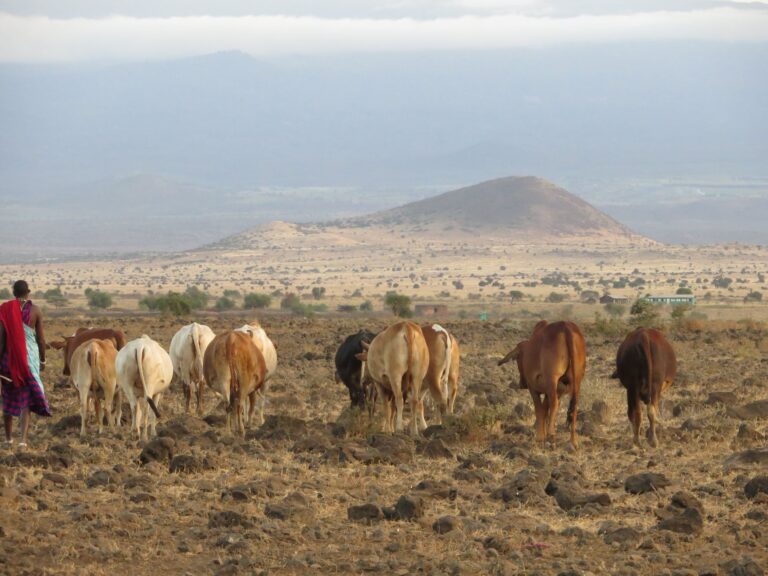On June 23, we join the hundreds of other organizations around to the world acknowledge International Widows Day. Adopted by the UN in 2010, this day highlights the issues affecting widows around the world and what must be done to safeguard and advance their rights.
Water is Life Kenya (WILK) has been addressing some of the problems Maasai widows face in the pilot of our Hope for Widows program. Though the cultural circumstances of Maasai widows create unique situations, like widows across the globe they suffer from poverty, violence, and health problems. Let’s look at the difficulties these widows face along with ways we’re helping them overcome those challenges.
The History of International Widows’ Day
International Widows’ Day, begun by The Loomba Foundation, attempts to educate the world about the plight that widows face on a daily basis. In 1954, Raj Loomba saw how his mother’s life completely changed the moment that his father died. He realized that if he had been the son of a poor widow, he would not have had all the advantages gained from a prosperous background and collegiate education. After his mother died in 1997, he and his wife set up a fund to help widows in India and their children.
He realized, however, that India was not the only place where widows struggled. Abuse and discrimination, especially in Asia and Africa, subjected widows to degrading treatment and little to no financial support. In 2005, Loomba addressed the House of Lords in London to expose the plight of widows around the world. His goal was to encourage governments and international organizations to develop programs and effective policies in an effort to break the cycle of poverty and degradation for widows worldwide.
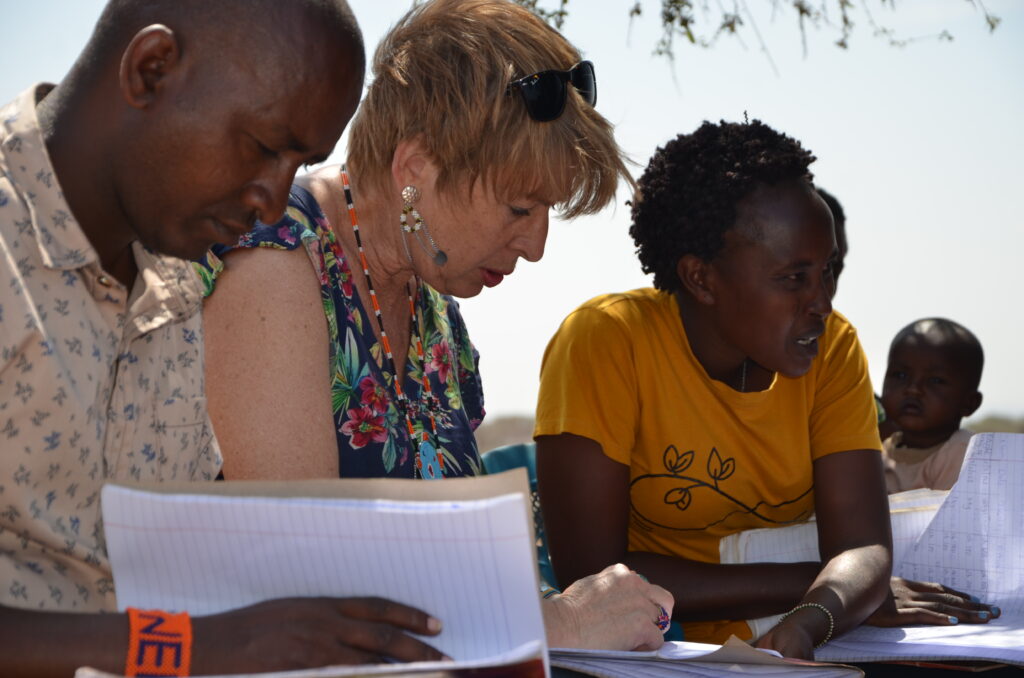
WILK Field Officers Nelson (left) and Cate right, alongside WILK Co-Founder, Joyce (center) reviewing the record keeping of Hope for Widows participants at a meeting.
WILK’s Widows
Maasai widows face significant challenges. Because young women often are married to older men, most Maasai women become widows—and are expected to not remarry. In a patriarchal society, a woman’s sons will inherit property and take on leadership roles in the community; widows, therefore, must rely on their sons to care for them when their husbands die. Since daughters are taught to accept subservience to their future husbands, women often find themselves unable to support themselves and their young children if their husband dies early. They resort to begging for food and money.
The first iteration of our Hope for Widows program intended to teach the most vulnerable Maasai widows—including young women without older sons to support them—how to build profitable businesses. If these women could earn and save more money, they could use it to buy nutritious food more regularly, pay school fees on time, and live with more dignity during devastating drought conditions, like the one endured over the past several years.
Some women, like the Amboseli widows, took to the challenge. They learned to work as a group. Though their businesses are independent of each other, they have a support network and help out when times get tough.
Successful Amboseli widows traveled to our other widows’ group in the Kilimanjaro Highlands. They shared how they learned to work together and help one another during difficult times. These women were empowered to work hard, provide for their families, and build a better future for themselves and each other. This is what’s possible when WILK’s community of givers supports women in need in Kenya.
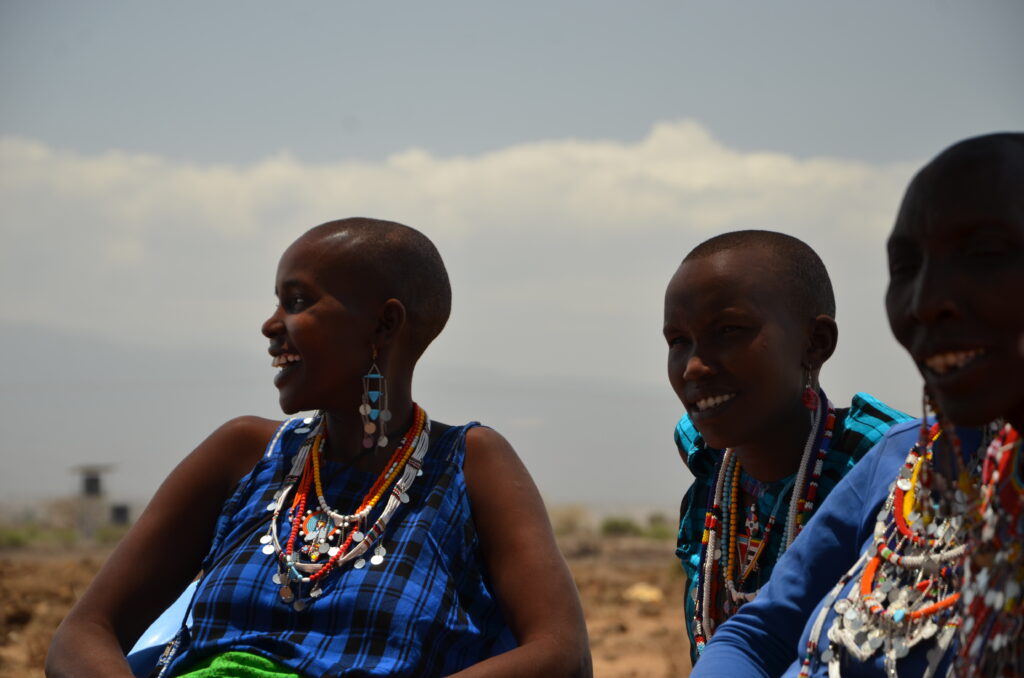
These widows have been working hard to start and run successful small businesses. They report higher levels of self-confidence and more support from others since beginning the program.
There’s More Work to Do
More than half of the women who participated in the Hope for Widows program last year managed to save enough money to withstand a 2.5-year-long drought. Still, we have a long way to go before more Maasai women are financially independent. Societal mores, a harsh living environment, malnutrition, and illiteracy are not easy to overcome. Each widow has a unique situation, which means we have to be creative when developing a program that fits her individual needs.
Though the challenge is steep, the imminent success is worth the cost. In the coming years of Hope for Widows, we will continue to support widows with workshops, training opportunities, and a sense of community. With these efforts, will be one step closer to bringing Maasai widows out of impoverishment, marginalization, and dependence on others.
On this International Widows Day, we at WILK affirm our commitment to addressing the needs of Maasai widows and developing solutions to empower them. These women work so hard for their families. It’s a privilege to get to work with them.
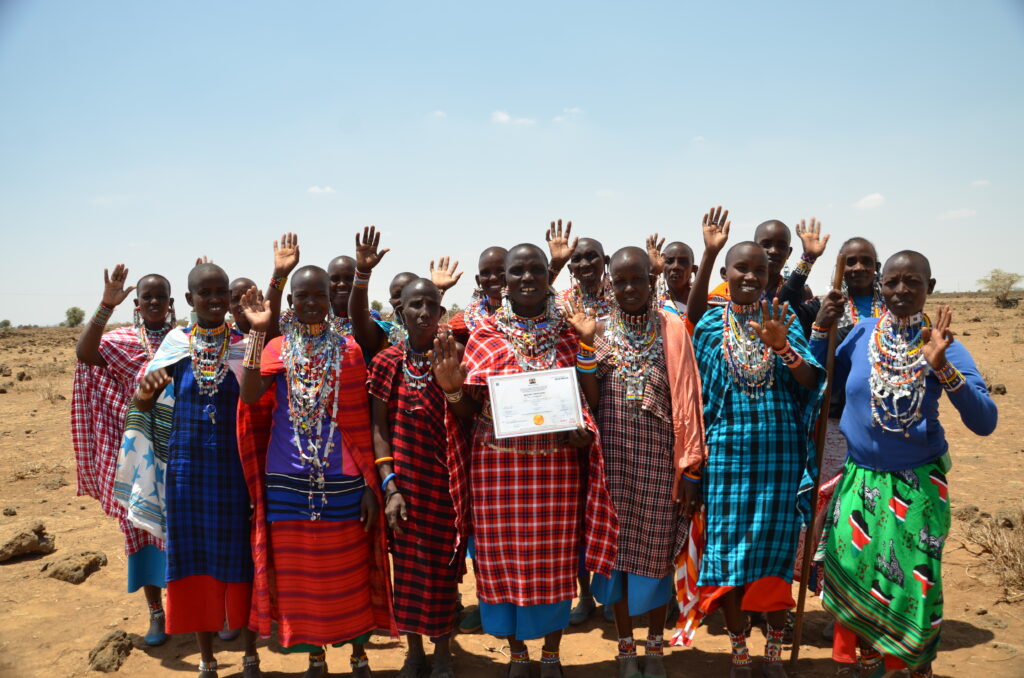
The Amboseli Widows celebrate their certificate from the Kajiado County Government which officially recognizes them as a Self-Help Group (February 2023).
